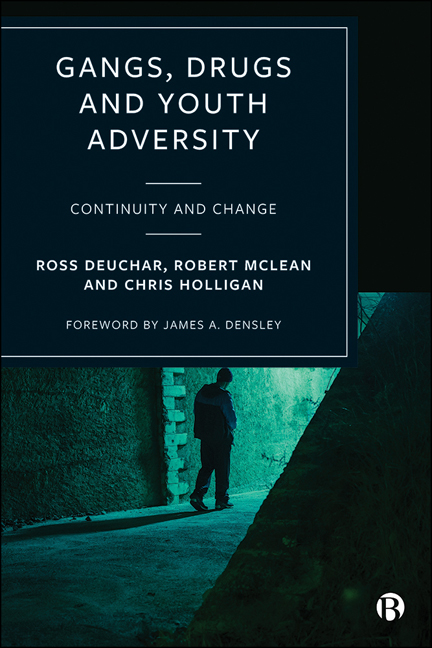Book contents
7 - Framing and Re-Framing the Experiences of Youth in Disadvantaged Scottish Communities
Published online by Cambridge University Press: 13 May 2022
Summary
In the interest of clarity and consistency of treatment, this concluding chapter aims to offer a faithful and detailed synthesis of the research findings from earlier chapters. Following this, we explore implications for policy and practice. We then conclude by reflecting on the limitations of our research work and propose directions for new research into the subjects addressed in the book. As each chapter has a distinct identity, our conclusion uses each one as a frame within which further analysis and synthesis are advanced. The bulk of the conclusion emphasises the framing of youth experience, after which we re-conceptualise perceptions through a more critical and less descriptive analysis.
Orientation, context and backdrop
We begin with a recap and further synthesis of the granularity of our empirical contribution against the scholarly context set out in the introductory chapter. The purpose of a conclusion is not to introduce substantially new material into the landscapes examined. There is, however, legitimate space for originality as we draw out and reinforce observations made in the book's chapters, individually and across them.
It could not be doubted that the landscape of criminality associated with young people (and particularly young men) typically domiciled in areas of intergenerational disadvantage evolves with such speed that it often eludes the capacity of criminologists to keep pace (Girling et al, 2013). Seen as an intervention into the contemporary world of gangs, violence, illegal drugs and their contested interconnection with organised crime, this book, based on research conducted in Scotland, has devoted its gaze to change and continuity in the lives of those who have first-hand experience of troubled urban landscapes. Homicide, serious assault, territoriality, County Lines, debt burden and imprisonment often haunt childhoods that are full of trauma, loss and regret (Coomber and Moyle, 2018; Harding, 2020). While recognising the merits of official policy interventions, our analysis throughout has recognised that poverty, unemployment and stigma remain a feature of the continuity in the factors that are globally associated with the criminogenic environment. Scotland is no exception to this generalisation.
Chapter 1 characterised the multi-layered threads that feed into this overview of contested criminality, including the question of the existence of gangs, definitions of the gang and its origins in expressions of delinquent youth culture.
- Type
- Chapter
- Information
- Gangs, Drugs and Youth AdversityContinuity and Change, pp. 129 - 146Publisher: Bristol University PressPrint publication year: 2021

